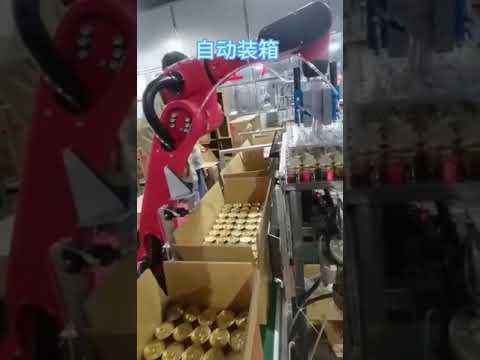Industrial Robots in Manufacturing and the Future of Automation
Advancements in technology have revolutionized every aspect of our lives, and the manufacturing industry is no exception. With the emergence of industrial robots, also known as industrial automation, businesses are taking a giant leap forward towards increased productivity, efficiency, and profitability. In this article, we will delve into the world of industrial robots in manufacturing and explore their incredible potential.
Industrial robots have been making waves in manufacturing plants across the globe. These sophisticated machines are designed to perform repetitive tasks with utmost precision and accuracy, eliminating the need for human labor in several areas of the production line. From assembling components to welding, painting, and packaging, these robots are capable of seamlessly executing a wide range of tasks that were once delegated to human workers.
One company that has been at the forefront of industrial robot innovation is WATO Group Limited. As a one-stop service provider, WATO is dedicated to the development and implementation of industrial robots for smart production. Their cutting-edge solutions have revolutionized the manufacturing industry, providing businesses with the efficiency and competitive edge they need to thrive in today's fast-paced world.
Industrial Robots for Smart Production have proven to be a game-changer for manufacturers across various industries. By incorporating state-of-the-art technology and artificial intelligence, these robots not only streamline the production process but also enhance product quality, reduce errors, and minimize wastage. With their ability to perform monotonous tasks tirelessly, industrial robots increase productivity exponentially, allowing manufacturers to meet customer demands in a timely manner.
The impact of industrial robots in manufacturing is evident in numerous case studies. Take, for example, a leading automotive manufacturer that integrated industrial robots into their production line. The robots were programmed to handle intricate welding tasks, a task that required high precision and attention to detail. As a result, the company experienced a significant reduction in defects and an increase in productivity. The robots worked tirelessly, without breaks or fatigue, ensuring that every weld was flawless.
Such success stories emphasize the immense potential industrial robots hold for the future of manufacturing. With their ability to work around the clock, without the limitations of human capacity, businesses can achieve remarkable operational efficiency. This not only translates into increased production but also allows manufacturers to allocate their workforce to more complex and value-driven tasks, ultimately fostering innovation and growth.
The implementation of industrial robots in manufacturing does raise questions about job security for human workers. However, it is important to recognize that while these robots automate certain tasks, they also create new job opportunities. Technological advancements demand a workforce that is skilled in operating and maintaining these robots, thereby creating a need for technicians and engineers who can harness their full potential. Through upskilling and retraining programs, individuals can adapt to the changing nature of work and remain relevant in the industry.
Looking ahead, the future of industrial robots in manufacturing seems promising. As technology continues to evolve, we can expect even more sophisticated robots with enhanced capabilities to emerge. From collaborative robots that can work alongside humans to intelligent robotic systems that can learn and adapt to new challenges, the possibilities are endless.
It is crucial for businesses to embrace this transformation and proactively invest in industrial robots to stay ahead of the competition. The advantages of improved productivity, reduced costs, and enhanced quality far outweigh any initial investments. Industrial robots serve as a catalyst for growth and pave the way for a more efficient and sustainable manufacturing industry.
In conclusion, the integration of industrial robots in manufacturing signifies a new era of automation and innovation. Companies like WATO Group Limited are leading the charge, providing businesses with comprehensive solutions for smart production. Through the implementation of industrial robots, manufacturers can unlock new levels of productivity, efficiency, and quality. As we move forward, it is essential for businesses to adapt, embrace change, and seize the immense potential of industrial robots in manufacturing.
Industrial Robot
"Revolutionizing Smart Production: The Unstoppable Rise of Industrial Robots in Manufacturing"


